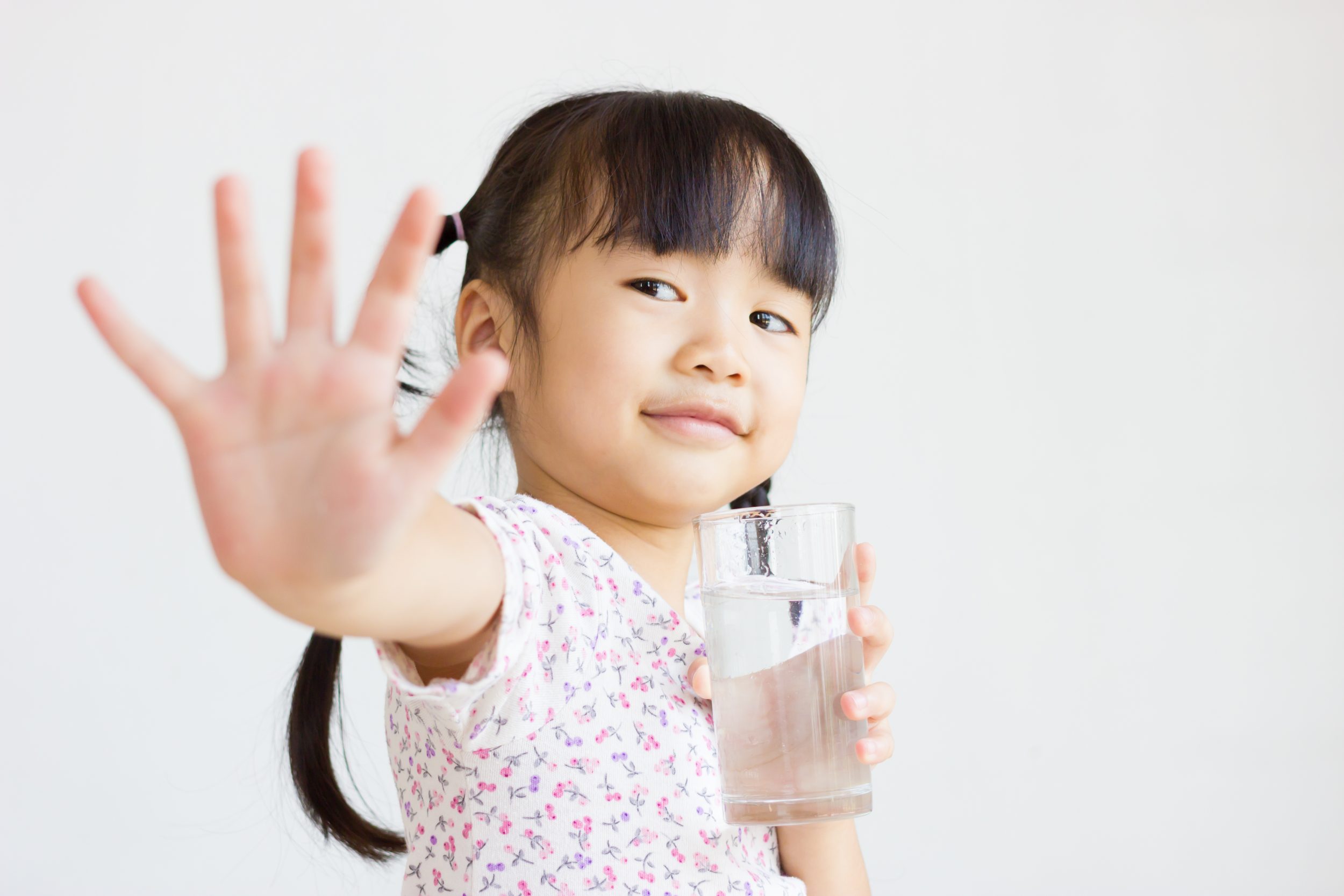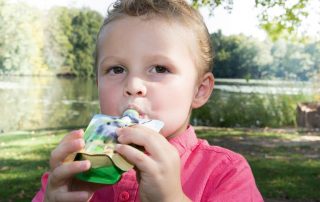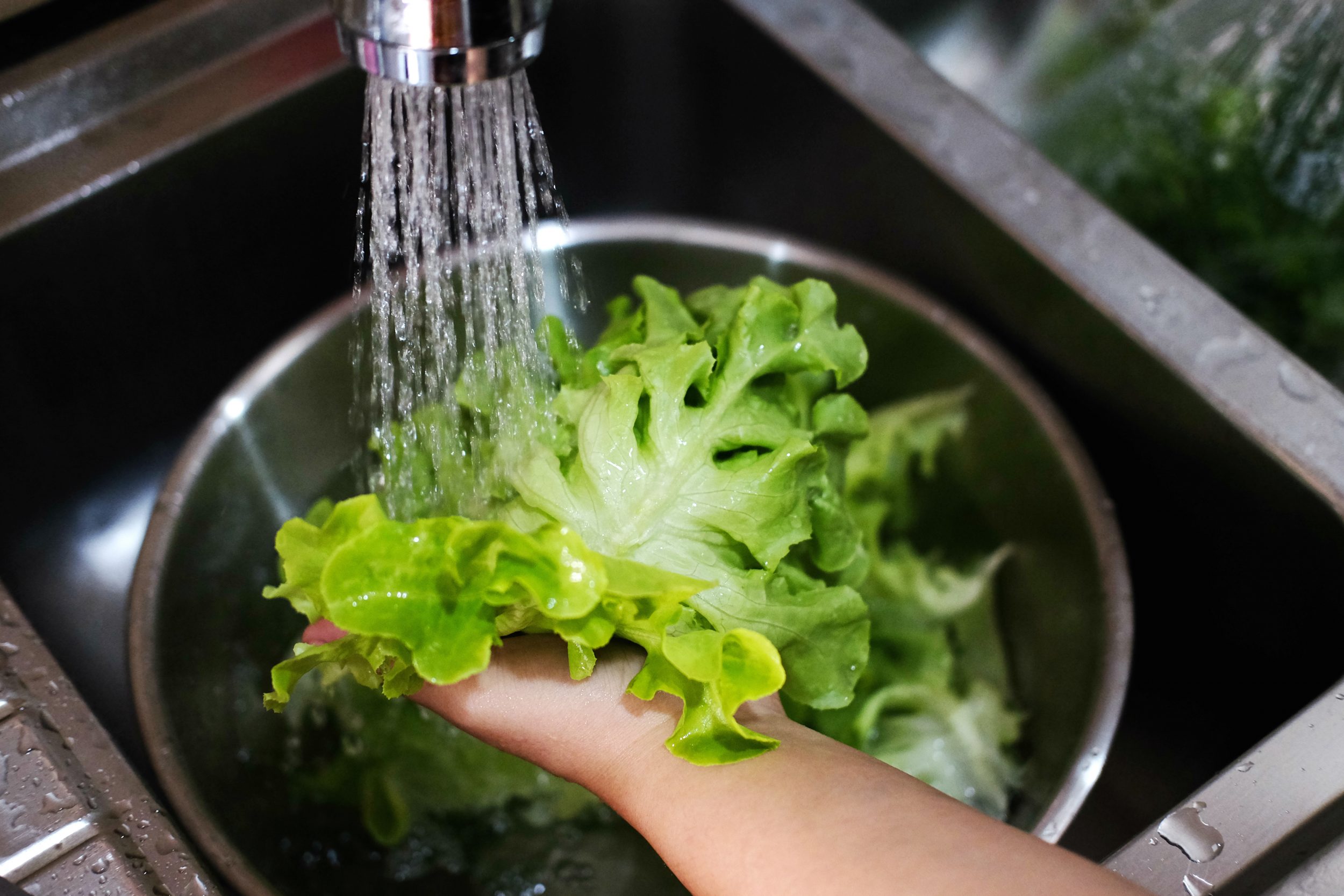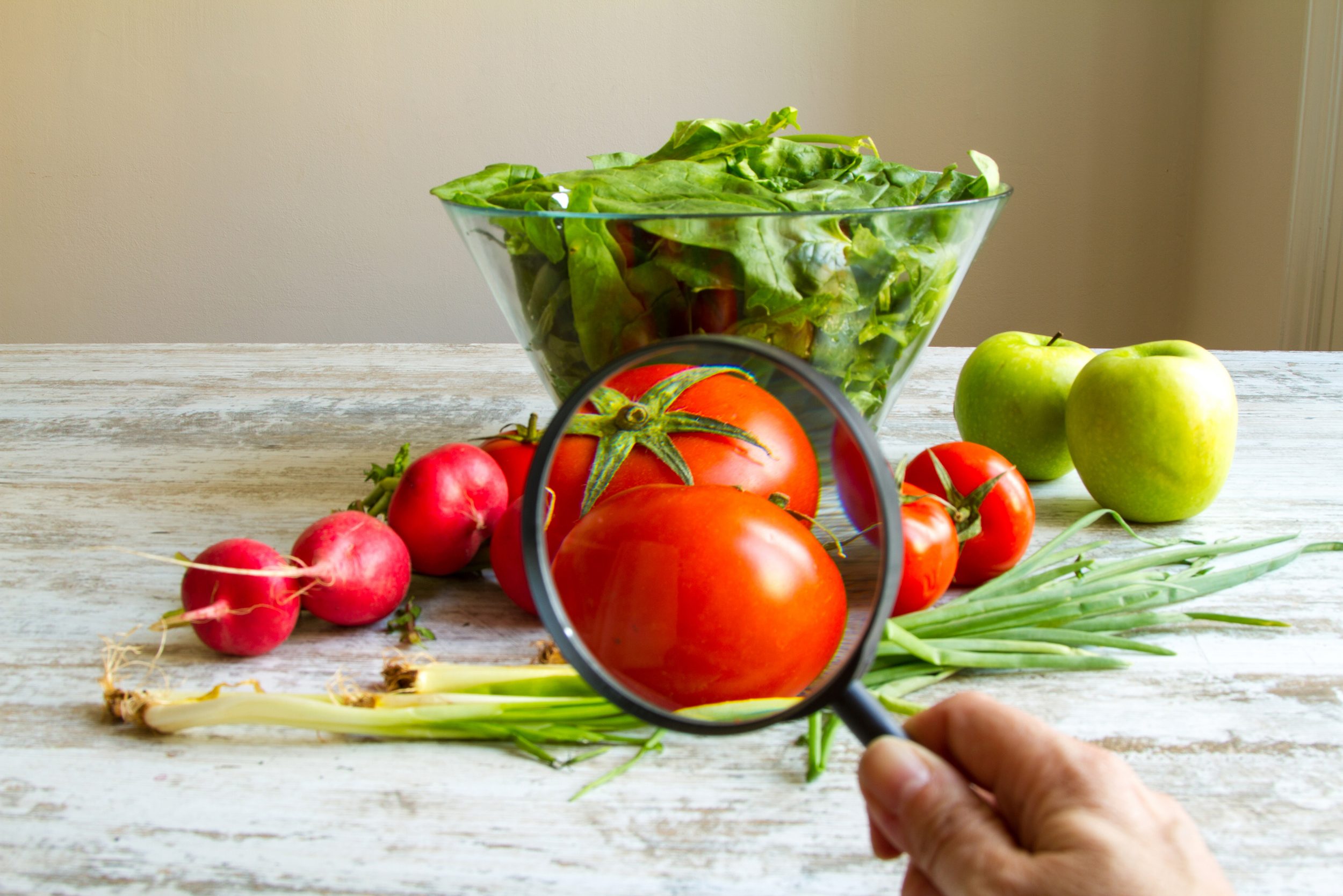Food that is not suitable for children
Bestimmte Lebensmittel sollten Kinder nicht essen. Folgende Lebensmittel sollten Sie Ihrem Kind nicht geben: Speisen, in denen rohe Eier, roher Fisch oder rohes Fleisch sind. Lebensmittel mit viel Salz. Zum Beispiel Knabbergebäck. Getränke mit Koffein. Zum Beispiel Kaffee, schwarzer und grüner Tee, Cola-Getränke oder Energy-Drinks. Alkohol Fisch mit Gräten Lebensmittel, auf denen Folgendes steht: "Kann Aktivität und Aufmerksamkeit bei Kindern beeinträchtigen." Broschüre – Jetzt ess ich mit den Großen Download Broschüre – So schmeckts uns allen Download Hinweis: Die ...
Squeezers? Better not!
"Squeezers" are porridge, rice pudding, pudding or similar in a bag. It is often fruit porridge. This looks like a healthy option. But there can be a lot of sugar in these products. Remember: fructose is also sugar. So a squeeze is not the same as a piece of fruit. Children absorb a lot of energy from these foods. As a result, your child may quickly overeat. There are up to 15 grams of sugar per sachet in the Quetschies! Children in the 1st year of life are often given Quetschies as complementary food. Complementary food is food that the baby eats in addition to breast milk.
Important tips for cleanliness and hygiene
It is important that you protect yourself and your child from infections. This is important during pregnancy, when breastfeeding and in everyday life. It is therefore important that your kitchen is clean. Also pay attention to cleanliness when you buy, store and prepare food. Cleanliness in the kitchen: Wash your and your child's hands regularly: before and after preparing food, before eating, after contact with animals, after gardening, after going to the toilet. Use clean towels to dry your hands. You can also use disposable towels. Swap ...
Play, run, move
Children should get as much exercise as possible, preferably outdoors. Your child should play outside for at least 1 hour every day. Your child can run, jump, climb or play ball, whatever they like to do at their age. If your child sits for longer than 1 hour, they should move around. Tell your child to get up and play or walk a few steps. If your child spends time in front of a screen, they should do some exercise afterwards. This balances out the sitting. Regular physical activity is important for many things: exercise helps build healthy bones, muscles and ...
Moving is fun!
Children should do as much exercise as possible. Preferably outdoors. Exercise is fun and improves children's movement sequences. Movement is good for dexterity. Especially difficult or varied types of movement, such as climbing, playing with a ball or moving to music. Children need to learn about dangers and risks. They need to learn what to do in a dangerous situation. They can only learn this from experience. Therefore, do not interrupt your child when they are trying out different types of movement. Only intervene if there is a serious risk. This is how you as parents can support your toddler's activity: ...
Does my child have an allergy or an intolerance?
Only a few children have allergies or intolerances to certain foods. If you believe that your child cannot tolerate certain foods, have a medical examination carried out. Do not leave food out for long periods of time if there is no medical confirmation of an allergy or intolerance. This could put a strain on your child if it does not get enough important nutrients. It could even be detrimental to their health. If your child has an allergy or cannot tolerate certain foods, seek professional advice. See a doctor or other nutritional specialist. For example, a dietician. This advice is useful to ensure that your child gets enough nutrients to ...









